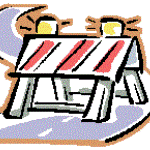 Until about this time last month, the world was practically flawless. Stocks were on the march. They were generally moving onward and upward as the Fed had ordained them.
Until about this time last month, the world was practically flawless. Stocks were on the march. They were generally moving onward and upward as the Fed had ordained them.
New Fed Chair, Janet Yellon, was finding her way too…completing the tapering work that Bernanke began. Despite a minor stumble of words it appeared she’d be able to hold the paper money charade together for at least a while longer. But then something slipped.
At first no one noticed. By the time people caught on to what was going on, the growth and technology stocks in the NASDAQ had cracked. Then the broad S&P 500 faltered. What to make of it?
David Winters, manager of Wintergreen Advisors fund, believes the recent drop in stock prices is a buying opportunity. “You can get filet mignon for chuck prices,” he said. Should you listen to him?
If Winters is right, this is this just a brief correction. Those who buy the dip will be rewarded. But if Winters is wrong, investors would be better suited to cash out, build up a stockpile of reserves, and ride out the storm.
The Big Bad Bull Market is Over
No doubt, the difference between the two positions is critical. How you see it, and the decisions you make, could add or subtract 10 years from your working life. So where to begin…
We like to keep things real simple around here at the Economic Prism. Thus we’ll crystalize it down for you to its very essence. We believe the big bad bull market that began on March 6, 2009, when the S&P 500 bottomed out at 666.79, is over. Yet this is the least of our worries. Obviously, we have some explaining to do…
“Markets make opinions,” say the old timers. Perhaps what this means is that when stocks are going up, the general population considers everything to be going A-OK. But when a big bad bear grips a stranglehold around the market’s neck, things don’t appear so rosy after all.
Suddenly the President goes from being comically insufficient to being a depraved disaster. The business climate quickly freezes up. Not long after that, corporate bonds blow up en masse.
When the stock market reverses in earnest, which we believe has already started, there won’t be a thing the Fed can do about it. The Fed won’t be able to prop up a crashing market…at the most they’ll be able to cushion the fall. Moreover, they won’t be able to stimulate the economy.
This Market’s Ready to Implode
In short, don’t listen to Winters. Buying the dip at this moment will prove to be a major miscalculation. The recent pullback is merely the grunts and rumblings of a market ready to implode. Plus, this is just the beginning…
Rising stock prices over the last 5-years had the agreeable effect of hiding the economy’s many flaws. Of course, the opposite will happen when stocks fall. The economy’s warts and grotesqueries will be more apparent than a drunk slumped over the front pew during Sunday morning service.
What we mean is artificially suppressed credit markets compelled investors and speculators to do things that would otherwise be absurd. Falling stock prices will only bring the economy’s many imbalances and distortions to light. They will no longer be hidden deep in the shadows of inflated asset prices.
Unfortunately, we will be entering the next recession following a painfully lethargic recovery…one that only served to widen the wealth gap. Because the recovery was only in ballooning asset prices, driven by radical infusions of Fed’s monetary gas, the recession will hit the struggling majority exceptionally hard.
This is the world that’ll come after the market crash. We don’t like it. But we won’t deny it. We’ll make the most of it the best we can…and you should too.
Sincerely,
MN Gordon
for Economic Prism
Return from This Market’s Ready to Implode to Economic Prism




